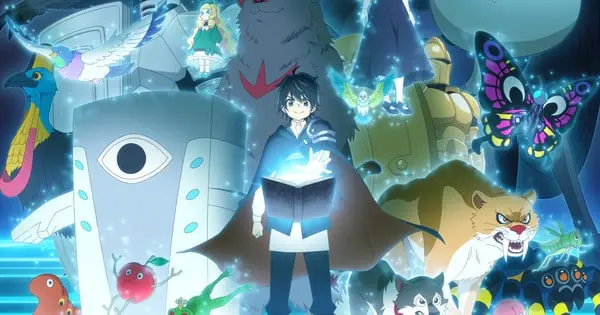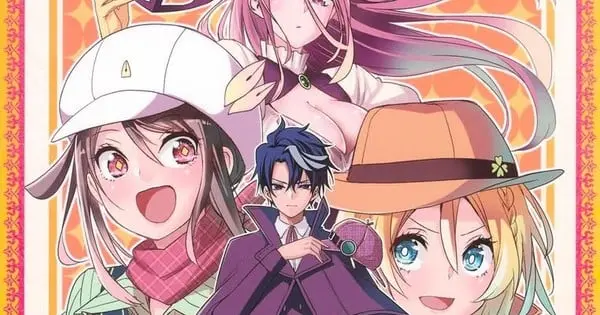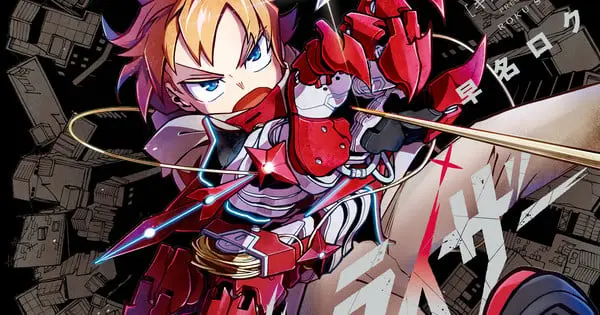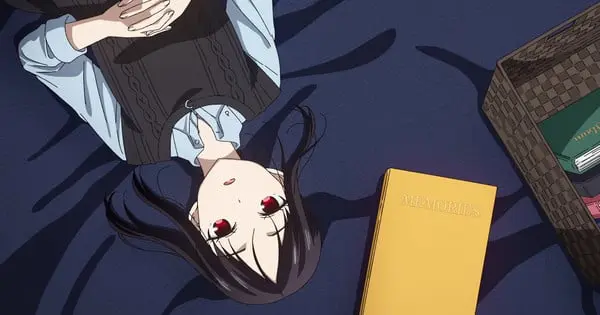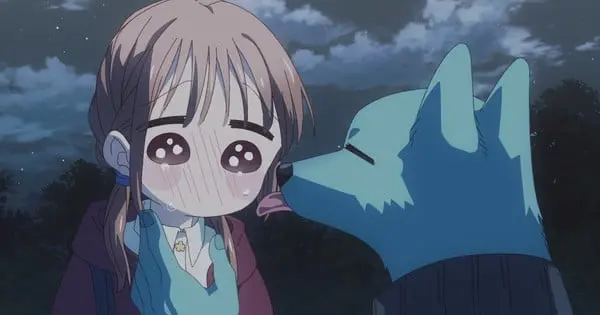In the fascinating world of Apocalypse Hotel, episode 4 takes viewers on an exciting adventure beyond the walls of the Gingarou Hotel. This anime continues to impress with its unique blend of post-apocalyptic setting, quirky characters, and heartwarming themes. Here’s a comprehensive breakdown of what makes episode 4 a standout, focusing on the adventure, character growth, and the underlying messages that resonate throughout.
A Culinary Quest
Episode 4, which aired on April 30, 2025, sees Yachiyo and Ponko embarking on a quest for novel ingredients. The motivation behind this culinary expedition stems from the passive-aggressive comments of the Tanukian guests, who express dissatisfaction with the hotel’s current menu. These Tanuki bodies require a variety of foods to sustain themselves, which are no longer readily available in the post-apocalyptic landscape.
Driven by their dedication to hospitality, Yachiyo and Ponko venture out to “rustle up some novel grub.” This sets the stage for an adventure that not only tests their resourcefulness but also deepens their understanding of the world around them. Their journey highlights the challenges of sourcing food in a world where the culinary offerings are far from synchronized with the hotel’s menu.
Breaking Out of Gingarou’s Walls
One of the most compelling aspects of this episode is its departure from the familiar confines of the Gingarou Hotel. Yachiyo and Ponko’s adventure unfolds across a collage of landscapes, showcasing the visual splendor and environmental diversity of the post-apocalyptic world. From urban decay to verdant forestry and desertified cities, the art direction flexes its muscles, providing a feast for the eyes.
This journey is more than just a visual treat; it’s a life-or-death struggle against an “ornery sandworm.” The episode masterfully blends humor, poignancy, and thrills as the duo faces the challenges of the outside world. The landscapes they traverse are both luscious and dangerous, emphasizing the constant need for adaptation and resilience.
Ponko’s Growth and the Importance of Self-Care
The episode particularly focuses on Ponko’s character development as she trains to become a valuable member of the Gingarou Hotel staff. As a Tanukian unfamiliar with human customs, Ponko’s journey is one of learning and adaptation. Under Yachiyo’s guidance, she grapples with hospitality training and etiquette, striving to meet the high standards of the hotel.
Throughout the episode, Ponko evolves from an “eager but overzealous upstart” into a more mature and thoughtful individual. Her experiences highlight the importance of self-care in order to effectively care for others. As she is programmed to prioritize the hotel, Ponko learns that taking care of herself is crucial for fulfilling her duties. This lesson is poignantly illustrated when she realizes that “snacks can save your life.”
A Nod to Spielberg and Sci-Fi Classics
Apocalypse Hotel pays homage to classic films such as Jurassic Park and War of the Worlds, enhancing the sense of adventure and excitement. The “tongue scene” is a notable highlight, reminiscent of Spielberg’s greatest works. These flourishes add depth to the narrative, surprising viewers with unexpected twists and turns.
The creature design in this episode is also noteworthy. The anime camel is praised as one of the best-looking camels ever animated, and the sandworm, Nudel, wears its influences on its sleeve while still being a compelling foe. The nod to Dune’s Shai-Hulud is unmistakable, adding a layer of appreciation for sci-fi enthusiasts.
Naming and Respect: Humanity’s Echo
A significant theme in episode 4 is the respect paid to all creatures, reflecting humanity’s enduring values even in its absence. Despite the extinction of humans, their influence remains embedded in the circuits of the hotel staff and the pop-culture-poisoned brains of the Tanuki. This is exemplified when Ponko consciously names the sandworm “Nudeloon” before taking decisive action.
Naming, in this context, is an act of acknowledgment and respect. By giving the sandworm a name, Ponko recognizes it as a worthy foe. The episode underscores that humanity’s legacy lives on through these gestures, even as the characters navigate a world devoid of humans. The worm’s legacy lives on in their dinner plates and in their stomachs.
Visual and Auditory Feast
The art direction in episode 4 is exceptional, offering viewers a rich and immersive experience. The visuals are described as a “feast for the eyes,” with luscious landscapes and detailed creature designs. The animation quality enhances every scene, making the adventure all the more captivating.
In addition to the stunning visuals, the sound design plays a crucial role in enhancing the viewing experience. The music and sound effects create an atmosphere that is both enchanting and thrilling, perfectly complementing the on-screen action. The combination of high-quality animation and immersive sound design makes Apocalypse Hotel a standout anime of the season.
Themes of the Episode
- Adaptation and Resilience: Yachiyo and Ponko’s journey highlights the need to adapt to the harsh realities of the post-apocalyptic world.
- The Importance of Self-Care: Ponko’s growth underscores the idea that taking care of oneself is essential for effectively caring for others.
- Humanity’s Enduring Values: The respect paid to all creatures, even in the absence of humans, reflects the lasting impact of human culture and ethics.
- The Power of Naming: Naming is presented as an act of acknowledgment and respect, highlighting the importance of recognizing the value of all living beings.
- Gratitude: Experiencing how hard they get food, it made Ponko feel even more gratitude towards food.
Cast and Production
Apocalypse Hotel is directed by Kana Shundo, who also took on storyboarding duties for episode 4, demonstrating her commitment to the series. The anime is produced by CygamesPictures, with CyberAgent handling production. Shigeru Murakoshi is responsible for the series composition, while Natsuki Yokoyama designs the anime characters based on Izumi Takemoto’s original designs. Yoshiaki Fujisawa composes the music.
The cast includes:
- Saho Shirasu as Yachiyo
- Sumire Morohoshi as Ponko
- Hiroki Tochi as Doorman Robo
- Shin-ichiro Miki as Environment Checker Robot
- Hiroyuki Kinoshita as The Owner
- Cho as Bumbuku
- Takako Honda as Mami
- Mutsumi Tamura as Fuguri
- Yoshiko Sakakibara as Mujina
Where to Watch
Apocalypse Hotel is available for streaming on Crunchyroll, with new episodes released weekly. The series offers subtitles in multiple languages, making it accessible to a global audience. Crunchyroll provides a premium option for ad-free viewing and access to new episodes shortly after they air in Japan.
A Top Anime of the Season
Apocalypse Hotel has garnered significant praise from viewers and critics alike, with many considering it one of the top anime of the Spring 2025 season. The series’ unique premise, well-developed characters, and stunning visuals have resonated with audiences. Episode 4 further solidifies its position as a standout anime, offering a perfect blend of adventure, humor, and heart.
Fans appreciate the series’ ability to blend genres, seamlessly transitioning between comedic moments and poignant reflections on the human condition. The characters are endearing and relatable, and the post-apocalyptic setting provides a fresh and intriguing backdrop for their stories.
Final Thoughts
Apocalypse Hotel episode 4 is a testament to the series’ strengths, delivering a compelling narrative, stunning visuals, and heartwarming themes. Yachiyo and Ponko’s adventure beyond the Gingarou Hotel is a thrilling and emotional journey that underscores the importance of adaptation, self-care, and respect for all living beings. With its unique blend of genres and endearing characters, Apocalypse Hotel continues to captivate audiences and solidify its place as a standout anime of the season.

